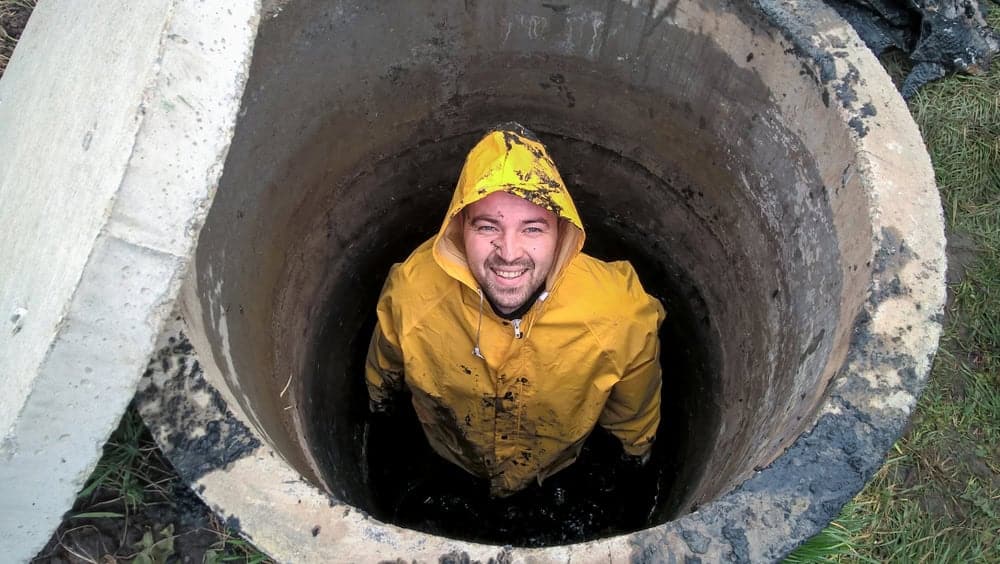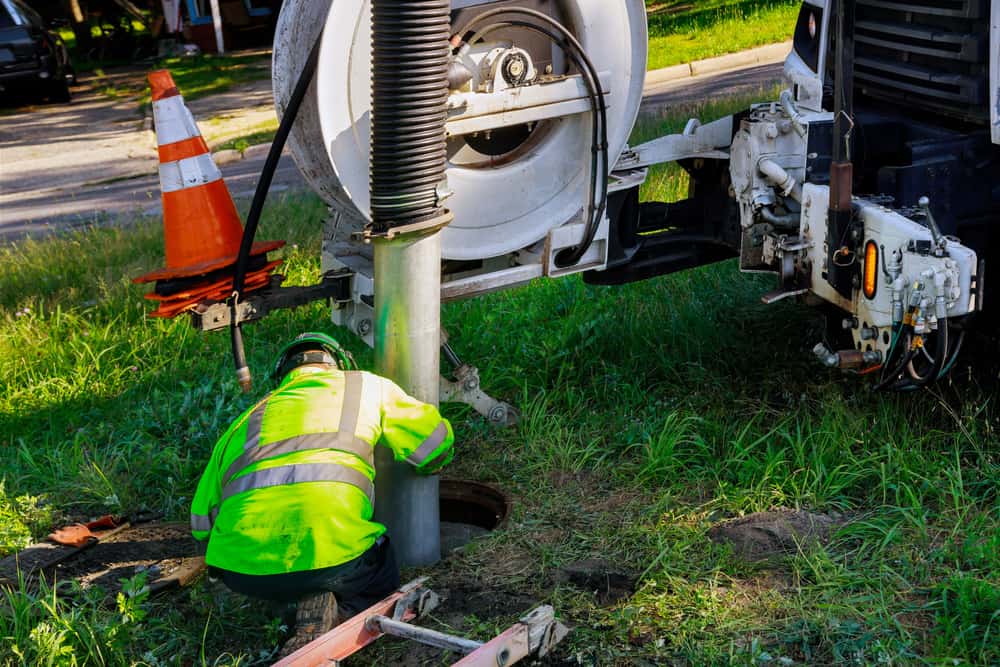Cesspool Services in Levittown, NY.
My husband and I needed the pipe that connects our home to the town sewer line replaced. Other companies told us they would need to rip up the sidewalk, street, and our walkway which would have cost us thousands in additional work.
More About Us
Browse Cesspool Services
contact us
Cesspool Repair: How to Deal with Common Issues in Levittown, NY with Cesspool Services

Identifying and Solving Cesspool Problems in Levittown, NY
In Levittown, NY, dealing with cesspool issues can be challenging. At Antorino & Sons, we know that problems like bad smells or slow drains are not just annoying, but can also be unhealthy. We’re experienced in fixing these issues in Nassau County. Our team understands how important a working cesspool is for your home.
When we check your cesspool, we look for common problems like blockages or damage. Our experts at Antorino & Sons have the right skills to find out what’s wrong and fix it. We’re good at spotting small problems before they get big. This means you can avoid bigger, more expensive repairs later.
We also help you keep your cesspool in good shape. Regular check-ups and maintenance are key. This helps your cesspool last longer and work better. At Antorino & Sons, we don’t just fix problems; we work with you to keep your cesspool system healthy in Levittown, NY. This way, your home stays safe and comfortable.
Local Expertise:
As a local cesspool service company in Levittown, NY, we offer personalized service understanding local soil and environmental conditions.
Comprehensive Services:
From cesspool cleaning to repair and installation, we provide a full range of services to meet all your needs.
Customer Satisfaction:
Our commitment to customer satisfaction in Nassau County has earned us a reputation for reliability and quality.

Maintaining Your Cesspool in Top Condition
Regular care is important for your cesspool in Levittown, NY. At Antorino & Sons, we stress the importance of this to prevent big issues. Regular cleaning and check-ups can stop problems before they start. We offer thorough cleaning services to keep your cesspool working right and reduce emergency repairs.
Good cesspool care means having it cleaned and checked regularly. Our team uses the latest tools to clean and inspect your cesspool. This keeps it running smoothly and can make it last longer. It also saves you money and stress in the long run.
At Antorino & Sons, we don’t just provide services; we advise you on how to best look after your cesspool. We offer custom tips and help for your property in Nassau County. If you’re unsure about your cesspool or need expert help, call us at 631-250-6829. We’re committed to quality service and keeping your cesspool in great shape.

Professional Cesspool Installation in Levittown, NY
If you’re in Levittown, NY, need a new cesspool, or want to update an old one, turn to Antorino & Sons. We specialize in installing cesspools, whether you’re building a new house or updating an old system. A well-installed cesspool is important for your property’s safety and function.
First, we look at your property in Nassau County carefully. We consider things like the type of soil and the size of your property. We make sure that every cesspool we install follows local rules and standards. Our team focuses on doing the job right, ensuring your new cesspool works well and is put in correctly.
Besides being experts at what we do, we’re also committed to great customer service. We keep you informed and answer all your questions. Choosing Antorino & Sons for your cesspool services in Levittown, NY means you get a reliable partner. We make sure your project goes well. Call us at 631-250-6829 to discuss how we can help with your cesspool.
Have a question?
The building firm, Levitt & Sons, headed by Abraham Levitt and his two sons, William and Alfred, built four planned communities called “Levittown”, in New York, Pennsylvania, New Jersey, and Puerto Rico; the Levittown in New York was the first. Additionally, Levitt & Sons’ designs are featured prominently in the older portion of Buffalo Grove, Illinois; Vernon Hills, Illinois; Willingboro Township, New Jersey; the Belair section of Bowie, Maryland; and the Greenbriar section of Fairfax, Virginia.
The Levitt firm began before World War II, as a builder of custom homes in upper middle-class communities on Long Island. During the war, however, the home building industry languished under a general embargo on private use of scarce raw materials. William “Bill” Levitt served in the Navy in the Seabees – the service’s construction battalions – and developed expertise in the mass-produced building of military housing using uniform and interchangeable parts. He was insistent that a postwar building boom would require similar mass-produced housing, and was able to purchase options on large swaths of onion and potato fields in undeveloped sections of Long Island.
Returning to the firm after war’s end, Bill Levitt persuaded his father and brother to embrace the utilitarian system of construction he had learned in the Navy. With his brother, Alfred, who was an architect, he designed a small one-floor house with an unfinished “expansion attic” that could be rapidly constructed and as rapidly rented to returning GIs and their young families. Levitt & Sons built the community with an eye towards speed, efficiency, and cost-effective construction; these methods led to a production rate of 30 houses a day by July 1948. They used pre-cut lumber and nails shipped from their own factories in Blue Lake, California, and built on concrete slabs, as they had done in a previous planned community in Norfolk, Virginia. This necessitated negotiating a change in the building code which, prior to the building of this community, did not permit concrete slabs. Given the urgent need for housing in the region, the town agreed. Levitt & Sons also controversially utilized non-union contractors in the project, a move which provoked picket lines. On the other hand, they paid their workers well and offered multiple incentives that allowed them to earn extra money, so that they often could earn twice as much a week as elsewhere. The company also cut out middlemen and purchased many items, including lumber and televisions, directly from manufacturers. The building of every house was reduced to 26 steps, with sub-contractors responsible for each step. His mass production of thousands of houses at virtually the same time allowed Levitt to sell them, with kitchens fully stocked with modern appliances, and a television in the living room, for as little as $8,000 each (equal to $104,846 today), which, with the G.I. Bill and federal housing subsidies, reduced the up-front cost of a house to many buyers to around $400 (equal to $5,242 today).
Learn more about Levittown.